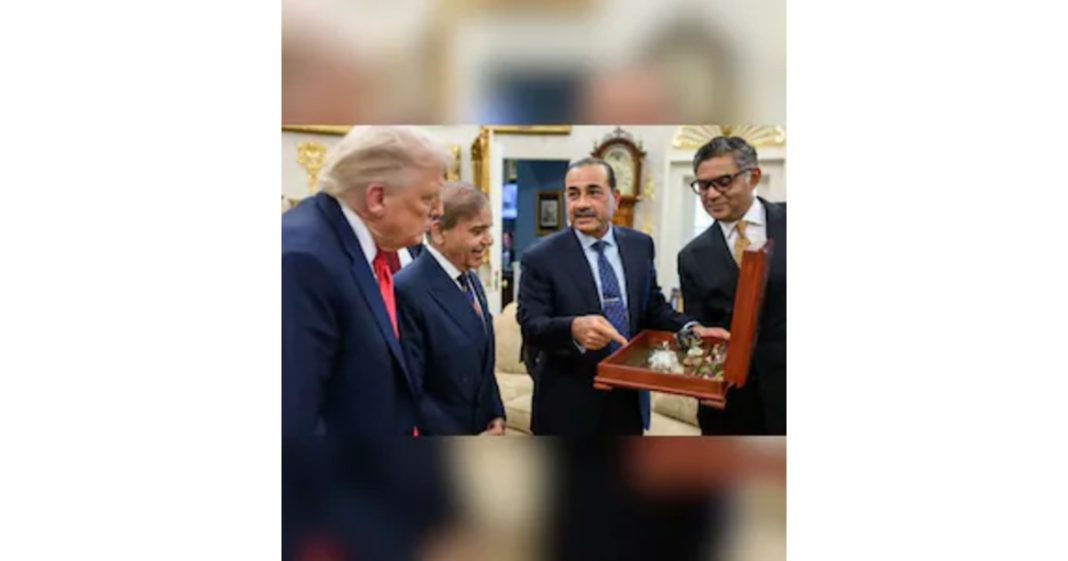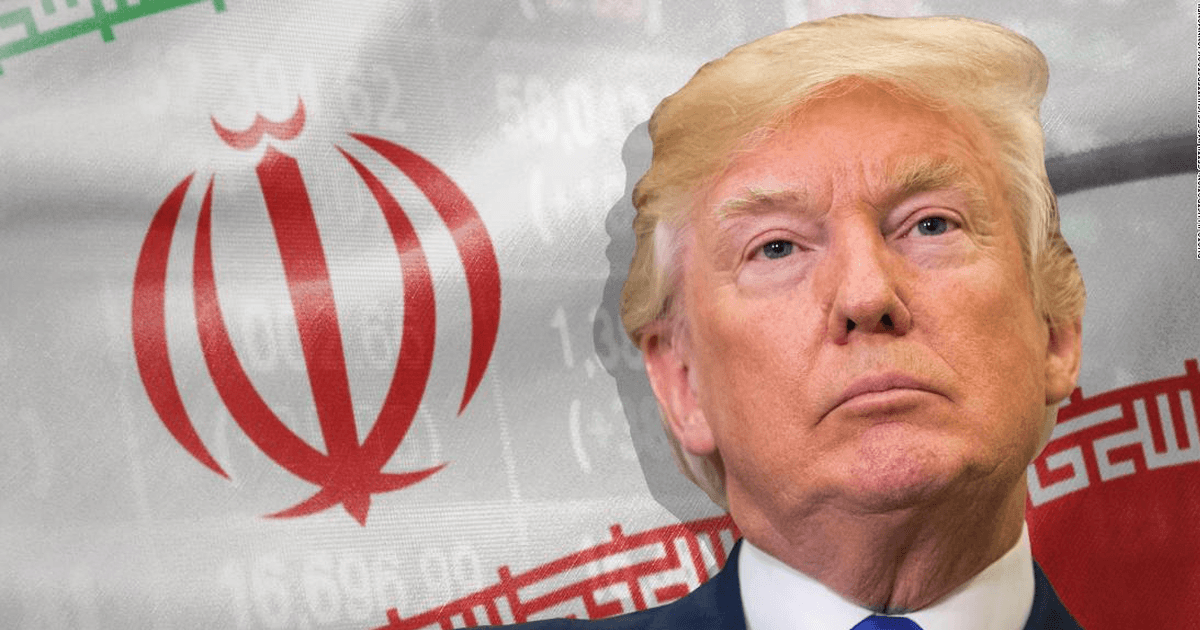Advisers to the Army chief of Pakistan, Field Marshal Asim Munir, have approached US officials with an offer to build and run a port on the Arabian Sea, the Financial Times reported on Friday, citing a plan seen by the newspaper.
The plan envisages American investors building and operating a terminal to access Pakistan’s critical minerals in the town of Pasni, according to the FT. Pasni is a port town located in Gwadar District, Balochistan Province, which borders Afghanistan and Iran.
The move comes after Munir, along with Pakistan’s Prime Minister Shehbaz Sharif, held a meeting with US President Donald Trump at the White House in September. In that meeting, Sharif sought investment from US companies in the agriculture, technology, mining, and energy sectors.
According to the FT, the offer was floated with some US officials and was shared with Munir ahead of a meeting with Trump in the White House late last month.
Blueprint Excludes U.S. Military Use
The blueprint excludes the use of the port for US military bases, and instead aims to attract development finance for a rail network linking the port to mineral-rich western provinces.
The seaport on the Arabian Sea will allow America to operate in Balochistan, a highly volatile province in western Pakistan, marred by terrorism and insurgencies. The audacious plan envisages American investors developing the seaside fishing town in Pasni as a terminal for access to Pakistan’s critical minerals.
Pasni is just 100 miles from Iran and 70 miles from the Pakistani city of Gwadar, where Pakistan is already operating a China-backed port. The initiative, which is not the official policy, reflects how Pakistani officials are exploring ways to capitalize on the sweeping geopolitical upheaval in South Asia of recent months.
The offer was floated with some U.S. officials and Asim Munir ahead of the meeting with Donald Trump in the White House late last month. However, according to a senior Trump administration official, the U.S. President and his advisers had not yet discussed such a proposal.
If China building Gwadar port did not transform Pakistan’s economy, will offering U.S. a port at Pasni change the country’s fortunes? Unlikely. There is no substitute for improving human capital, increasing productivity, & ensuring security & stability. https://t.co/B39tkVklvo
— Husain Haqqani (@husainhaqqani) October 4, 2025
Strengthening Diplomatic Relations with Washington
This initiative is among other plans to maintain the warming of Islamabad’s diplomatic relations with Washington. Pakistan is also seeking to expand engagement on the Trump-backed crypto venture, deepening cooperation against Afghanistan-based militant group IISK, endorsement of his Gaza peace plan, and access to critical minerals.
The India-Pakistan war in May 2025 recalibrated the US-Pakistan relations. Pakistan acknowledged the role of US President Donald Trump in the ceasefire with India in May 2025. Later, Field Marshal Syed Asim Munir and Pakistan’s PM Shehbaz Sharif nominated Trump for the Nobel Peace Prize. On the other hand, India-US relations frayed after New Delhi’s reluctance to credit US President Trump for the ceasefire.
Trump has lavished praise on Pakistan’s Army Chief after their latest meeting last month. The White House released pictures of Asim Munir and Shabbar Sharif presenting the U.S. leader with a display case of mineral samples.
Many insiders say the US-Pakistan relations were not as they should have been. India has occupied the space for the last two decades.
Strategic Importance and China’s Presence
The proposed port at Pasni would be linked to a railway to transport minerals from Pakistan’s interior, in particular, copper and antimony, a vital ingredient in batteries, fire retardants, and missiles. A blueprint anticipated that the port would cost up to $1.2 billion. Advocates of the plan see it as a way of hedging the country’s position on the global stage as it seeks to balance its relations with China, the US, Iran, and Saudi Arabia. Pakistan has recently signed a defence security pact with Saudi Arabia.
“Pasni’s proximity to Iran and Central Asia enhances US options for trade and security . . . Engagement at Pasni would counterbalance Gwadar . . . and expand US influence in the Arabian Sea and Central Asia,” according to the blueprint. “China’s Gwadar investments under the Belt and Road Initiative raise dual-use concerns,” it added.
China is already operating in the region under CPEC, a comprehensive belt-and-road initiative, and is traditionally Pakistan’s closest partner, providing much of its supply of defence equipment and billions of dollars of loans and investments. Pakistan recently used China-supplied aircraft and weapon systems to shoot down up to six Indian aircraft in May.
Read more: Will change geography of Pakistan: Indian Army Chief threatens Pakistan
Pakistan’s Untapped Mineral Potential
The blueprint plan excludes direct US basing, which the advisers said would not serve as a US military installation. The Missouri-based company US Strategic Metals signed a Memorandum of Understanding with Pakistan’s military engineering arm to boost collaboration.
Breaking 🚨 @FT story by @AlecuRussell & @humza_jilani, “Pakistan courts US with pitch for new Arabian Sea port”
Wonder how will the Chinese and Iranians perceive the “audacious plan”, that “envisages American investors developing the seaside fishing town of Pasni just 100 miles…
— Javed Hassan (@javedhassan) October 4, 2025
Pasni town, with a deep natural water port, could be linked by rail to Rikodek, a copper and gold mine being developed by Canada’s Barak Mining. Late last month, Pakistan sent a modern first consignment of fewer than two tons of critical and rare-earth minerals to USSM that included copper, antimony, and neodymium.
As I have been saying, the Pak strategy is to impress Trump with several concrete offers. Indians in denial attacking me for trying to wake them up. Don’t under estimate others. Dangerous to be overconfident. “Feel good” craving is an addiction to avoid https://t.co/vOugnXCThq
— Rajiv Malhotra (@RajivMessage) October 4, 2025
The price of which surged following Beijing’s imposed ban on selling it to the US. Pakistan’s mineral sector currently contributes only about 3% of its GDP, and much of its undeveloped resources are in western provinces in Balochistan. Pakistani researchers believe that the country has vast untapped mineral potential and is keen to capitalize on the potential to extract economic benefits.
With Additional Input from GVS South Asia Desk













